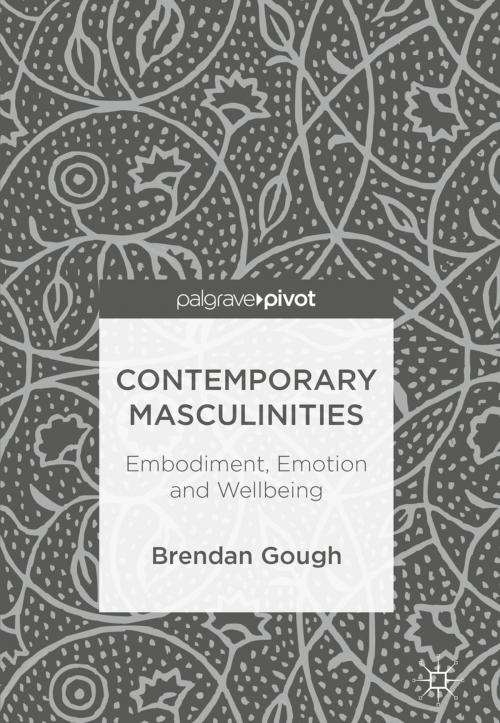Contemporary Masculinities
Embodiment, Emotion and Wellbeing
Nonfiction, Health & Well Being, Psychology, Emotions, Social & Cultural Studies, Social Science, Gender Studies| Author: | Brendan Gough | ISBN: | 9783319788197 |
| Publisher: | Springer International Publishing | Publication: | April 19, 2018 |
| Imprint: | Palgrave Pivot | Language: | English |
| Author: | Brendan Gough |
| ISBN: | 9783319788197 |
| Publisher: | Springer International Publishing |
| Publication: | April 19, 2018 |
| Imprint: | Palgrave Pivot |
| Language: | English |
This book assesses the construction of masculinities in relation to appearance, embodiment and emotions by drawing on perspectives in psychology, sociology, gender studies and public health. Brendan Gough questions conventional assumptions about masculinity and men’s health and responds to recent trends in critical studies of masculinities which discuss ‘positive’ or ‘healthy’ masculine identities. The book showcases discursively inflected qualitative research using data sources where men’s own accounts are prioritised: in-depth interviews and online discussion forums. Chapters discuss men’s appearance concerns and activities and examine male mental health, focusing on vulnerability and its management. Current trends and key concepts, including intersectionality, inequalities and embodiment are also considered throughout. This book will appeal to students and academics within social sciences and humanities interested in gender issues in general and masculinity in particular.
This book assesses the construction of masculinities in relation to appearance, embodiment and emotions by drawing on perspectives in psychology, sociology, gender studies and public health. Brendan Gough questions conventional assumptions about masculinity and men’s health and responds to recent trends in critical studies of masculinities which discuss ‘positive’ or ‘healthy’ masculine identities. The book showcases discursively inflected qualitative research using data sources where men’s own accounts are prioritised: in-depth interviews and online discussion forums. Chapters discuss men’s appearance concerns and activities and examine male mental health, focusing on vulnerability and its management. Current trends and key concepts, including intersectionality, inequalities and embodiment are also considered throughout. This book will appeal to students and academics within social sciences and humanities interested in gender issues in general and masculinity in particular.















